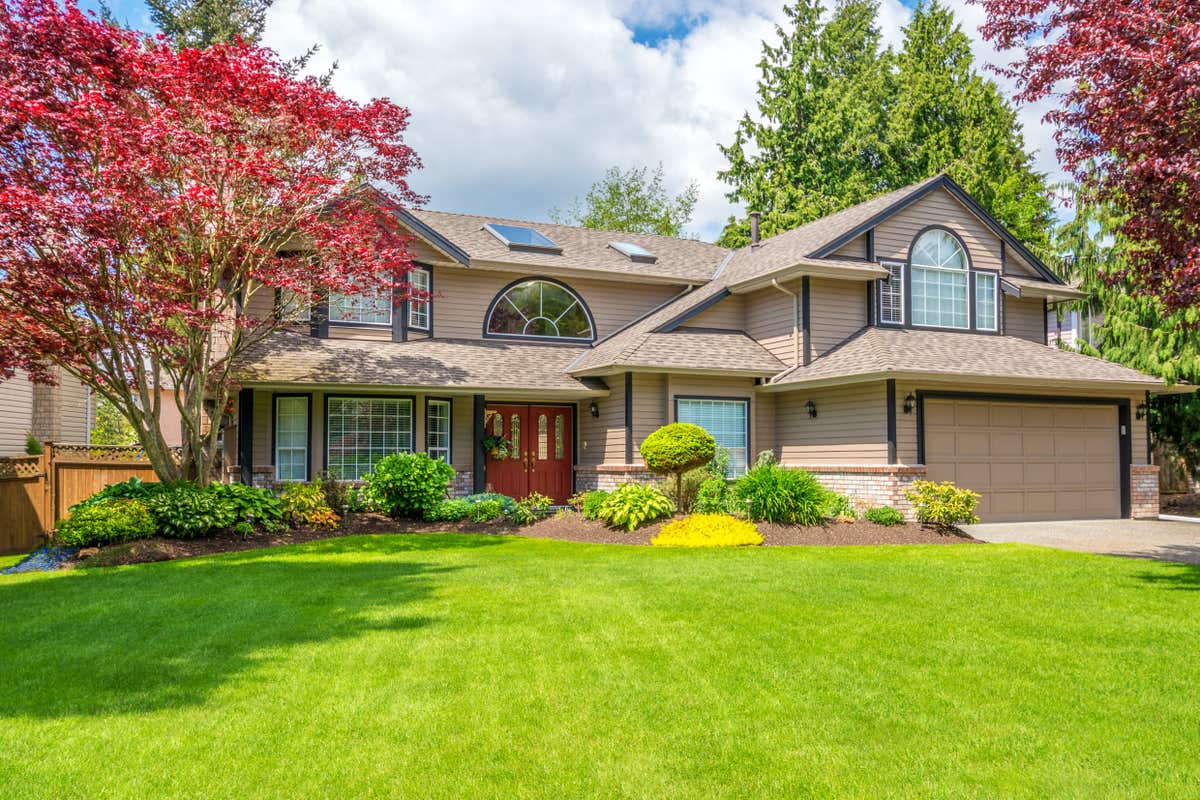Your home’s value comes into play when you’re selling your home, refinancing a mortgage, or getting insurance.
While your home’s market value is the most important consideration when refinancing or selling, its replacement cost matters most when insuring it. These numbers may be similar, but they’re not always the same.
Let’s take a look at how value is determined and what it means for you.
How your home’s valuation is determined
The market value of your home is what you paid or what someone else is willing to pay for the home. It includes the value of the structure and the land – and that figure can vary wildly based on inventory or desirable locations. The market value can also be extremely low due to shrinking markets, as John Castle, a top-performing Keller Williams realtor explains.
“In shrinking markets (e.g., Detroit), an abundance of vacant, or unwanted, properties can mean it costs more to replace the structure than it costs to buy one of the many unwanted properties on the market,” he explains.
There are many online tools, like Zillow and Redfin, that can give you a home market value estimate, but the most accurate valuation is a professional appraisal. Appraisals can cost anywhere from $300 to $450 – sometimes more in high-demand markets.
There are generally 15 factors that influence a home appraisal:
- Location
- Construction materials
- Home age
- Design of home
- Curb appeal
- Number of bedrooms
- Number of bathrooms
- Square footage
- Type of heat and air conditioning
- Storage space
- Garage space
- Home renovations
- Current real estate market
- Nearby attractions or amenities
- How much comparable homes sold for
As you can see, there is a lot more to the fair market value of a home than just how much it would cost to build the home. Even brand-new homes are sold at a markup from the building costs because contractors need to make money on the deal. And how desirable the area is will play a big factor in whether or not the fair market value is higher or lower than the building costs.
Castle also notes, “After widespread financial hardship, the market value of a home can drop below its replacement costs.”
How your home’s replacement cost is determined
You’ll often see your home's “replacement cost” in insurance policies. This is what it would cost to rebuild your home from the ground up after a total loss.
Replacement cost is usually calculated as your home’s square footage multiplied by the cost of building materials per square foot. Home Advisor notes the average cost to rebuild a house is about $150 per square foot but can be more for high-end or custom homes.
What exactly goes into the cost per square foot? The formula considers several factors, such as:
- Exterior building materials
- Number of rooms
- Number of bathrooms
- Quality of interior materials and finish
- Special features (fireplaces, crown molding, etc.)
- Roof type
Folks often get concerned when they see a much lower replacement cost compared to what they bought their home for (market value). According to Grant Muller, owner of Spaces Real Estate in Chicago, “If your insurance policy is lower than what you're paying for your home, don't be overly concerned with this number. In fact, most homeowners don't insure their properties at the market value. That kind of coverage would come with a higher premium and a higher deductible.”
Muller brings up a good point. If you insure your home for the market value, you could be paying more in insurance that won’t build you more of a home than what you have. You’ll be overinsured. The market value of your home will likely fluctuate much more than the replacement cost of your home.
How to find your home’s value
Again, the best way to figure out your home value is to get a professional appraisal. But if you’re thinking about refinancing, remodeling, or selling; or you’re just curious about how your home is faring in the marketplace, you don’t need to pay for an appraisal to get an estimate.
Online home valuation tools can give you a ballpark estimate of your home’s value. In fact, if you sign up for updates, you’ll get notified when your home’s estimated value changes.
Redfin, for example, easy to use. Simply type in your home address (or any address you’re interested in) to see an estimate. If the home is for sale, you can see the market price. If it isn’t for sale, you will see the last sold price based on the public record.
What makes home values change?
As you can imagine, home values fluctuate depending on market conditions. Ideally, your home appreciates in value because you live in a sought after neighborhood. Desirable neighborhoods often have good schools, nice parks, and other amenities that make living in the area more enjoyable or comfortable.
Factors that can affect home worth include:
- Economic conditions
- Inventory
- Interest rates
When a community is economically comfortable, the value of homes tends to go up. Folks with more disposable income can often upgrade their homes, which boosts the local housing market.
In general, there’s a close relationship between the economy and housing values. If the economy slows down, the money supply restricts, making it harder to borrow. Fewer homes will likely go on the market as folks stay put in their existing homes. That can cause prices to drop.
However, during good economic conditions when there’s not many homes for sale, the market value in that area can rise.
Chief Real Estate Analyst Emile L'Eplattenier at TheClose.com explains, “In expensive areas with low inventory, replacement costs can be far lower than what you paid for the home as half or more of the value is in the land itself. In fact, in places like Beverly Hills, multi-million dollar homes are often torn down and replaced with brand new homes even after spending tens of millions of dollars for the property.”
Interest rates can also impact a home’s value. When interest rates go up, buying a new home becomes more cost prohibitive. If fewer people are in the market to buy, prices may dip. Conversely, lower interest rates may increase home valuations if more buyers enter the market and folks want to cash out their home’s equity.
You can personally affect the value of your home, too. Home maintenance, like painting or installing a new roof, can increase the value of your home. Renovating your home or adding square footage can also increase its value. If you don’t maintain your home, its value will likely drop, particularly when compared to other homes in the area.


